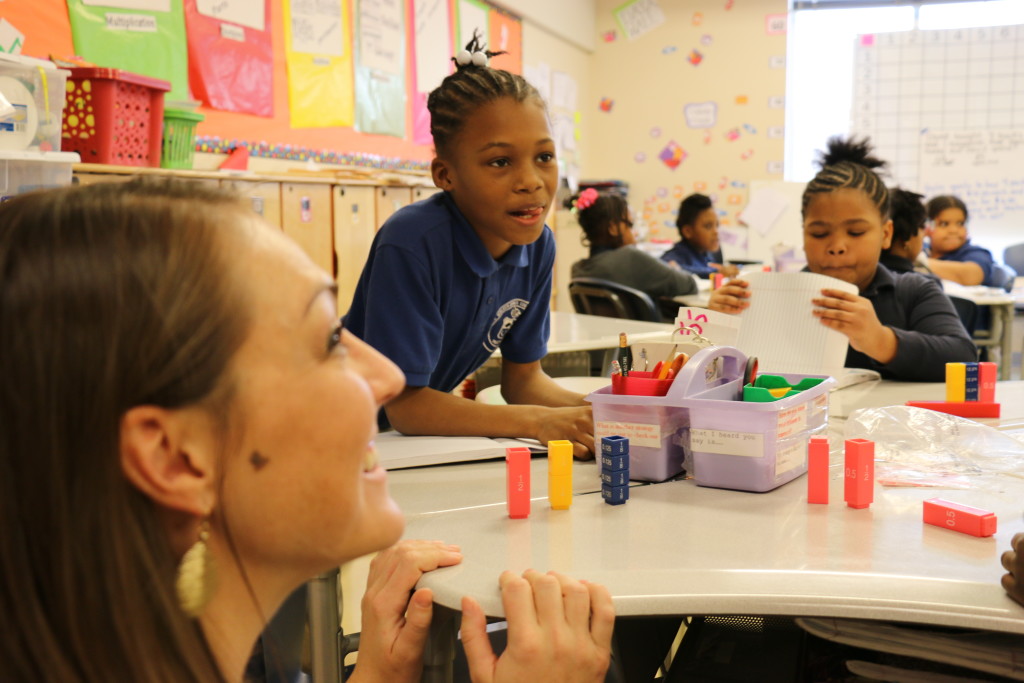Establishing Trust
 By Amy Nicholson, Program Director, Washington, D.C.
By Amy Nicholson, Program Director, Washington, D.C.
As Turnaround’s Program Director in Washington, D.C., Amy Nicholson is responsible for implementing Turnaround’s school improvement model in two partner schools – Walker-Jones Education Campus and Houston Elementary School. In the following reflection, Amy reminds us that the path to school improvement isn’t always about giant victories, but rather the small wins that help build trust, partnership and a path to success.
Six months into our weekly meetings, I showed up at the principal’s office at our scheduled time. He opened the door, welcomed me in, then ran off to deal with a student issue that had just come up. As I reviewed my notes and agenda for the meeting, he returned breathless, sat down and looked at me, “What do you have for me today, Nicholson?”
I paused, said something about the day, checked in on a variety of logistics and then began the part of the conversation I knew was necessary: “You still haven’t sent that data. Let’s pull it together right now.” I saw the principal’s wheels turn and wondered if he would run out of the office, ask to reschedule or deflect to an external reason for why he hadn’t yet sent me student behavior data we’d been planning for and waiting for for weeks. Instead, he took a deep breath and admitted, “I don’t know how to pull it.”
“That’s it!?” I thought excitedly. This I could fix. This problem was easy. A quick tech fix could resolve this seemingly insurmountable dilemma in less than five minutes. I breathed a sigh of relief. One username reset and software update later, all was fixed.
I left that meeting recognizing the success of the interaction. Not because we finally had student behavior data to inform our action plan, not because of a small tech fix, but because I knew that in this small moment was a sign of trust. I left our meeting filled with hope for a productive future.
Being a principal is a lonely job. Especially in Washington, D.C., principals operate in high-pressure, high-accountability environments and many feel as though they’re constantly being evaluated and rarely offered support. Simple tasks can become monumental roadblocks when you don’t feel like you have anyone to turn to or ask for help.
Working in high-poverty, underperforming schools starts with establishing trust and building a kind of shame resilience in adults. This meeting didn’t feel glamourous. No children’s lives were changed. But the seeds of trust and the foundation of a strong working relationship had begun to bloom. Having this principal reach out and honestly ask for help without the fear of judgement wouldn’t have been something I set as a goal when I first started working at Turnaround for Children. But, I’ve learned, this is the work. The big goal is still to have this school become a place that educates every single child well. We’re not there yet, but there is a path forward. And it starts with trust.

Share This Story